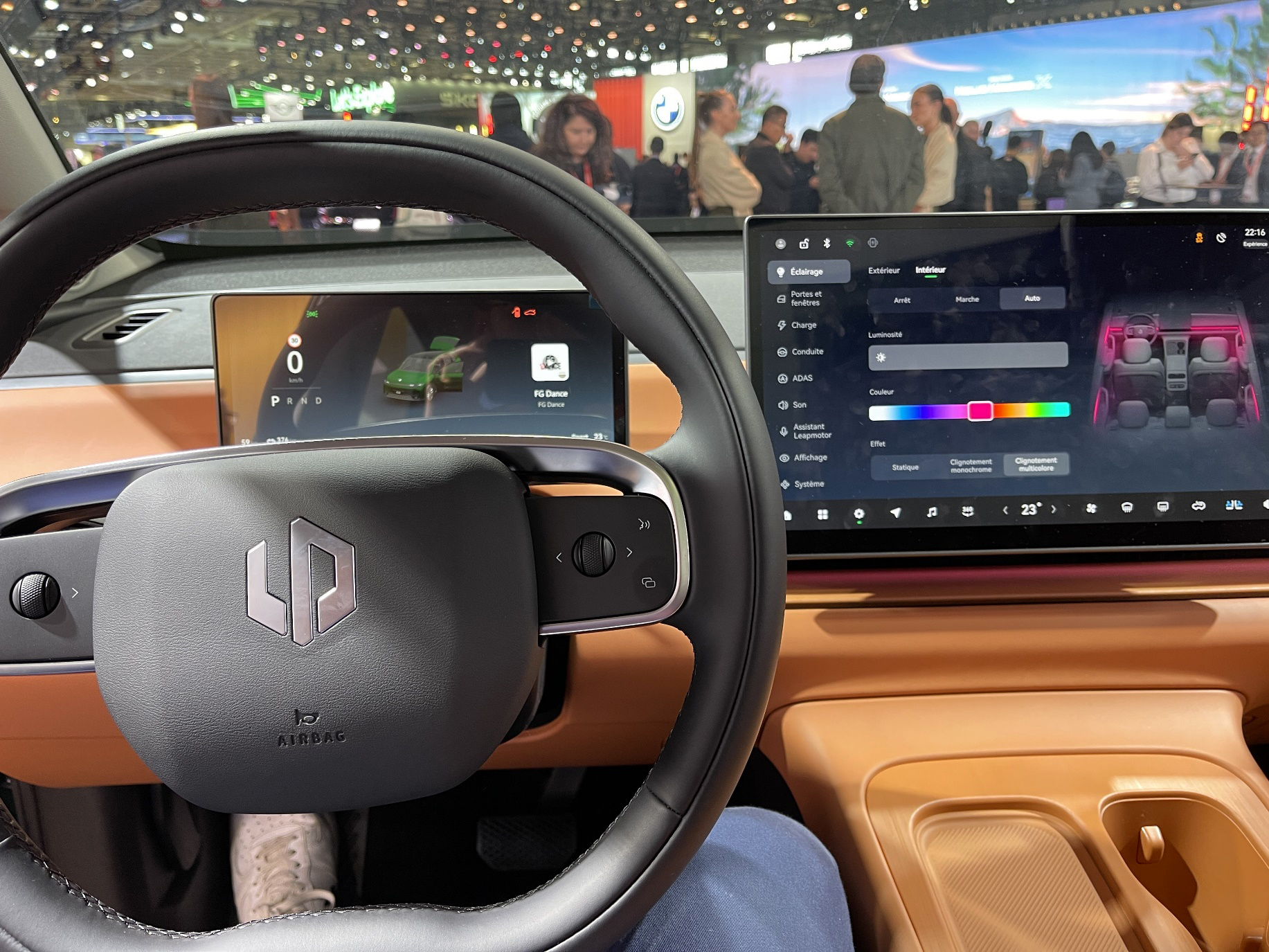Audi have just released their final opus of Quadrilogy of new vehicles. After the Q6 e-tron, A5, and A6 e-tron, it’s time now for the new Q5.
The first generation of Q5 started in 2008 with 1.6 million sold units. For generation 2, production moved from Ingolstadt to Mexico, and will remain in Mexico for the newly-current 3rd generation—it’s the 5th generation of front lighting package for the Q5, counting facelifts. The car’s main market is North America (44 per cent), followed by Europe (35 per cent). The Q5 has ICE, MHEV, and PHEV powertrain options. Start of production for the new one is scheduled for Q1 2025.
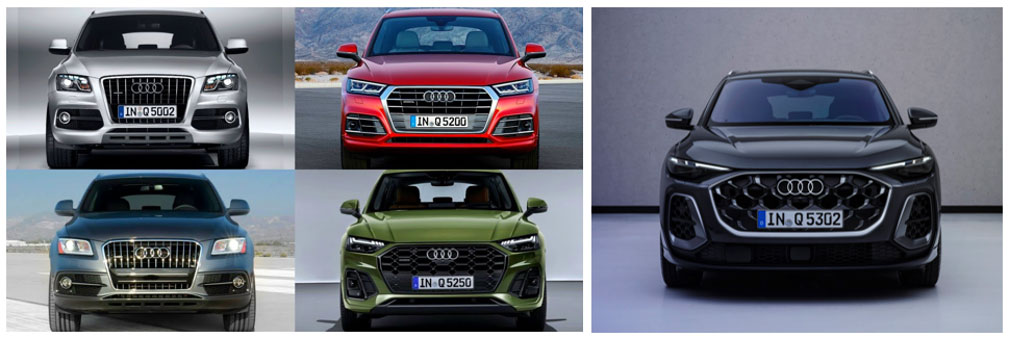
It’s an Audi, so naturally there’s a great deal of lighting content. Like all other vehicles based on the new E3 1.2 electronic architecture, we find front and rear active signaling and driver’s choice of eight different presence light signatures.

Audi is proposing a Matrix function with a bi-matrix module (lens height 45mm, 16 ADB segments), plus additional high beam reflector spot and cornering / all-weather module.

For front signalling, there are 15 different pixels that allows different signatures and a very interesting, partially reciprocally incorporated turn indicator and daytime running lamp. A fine piece of art!
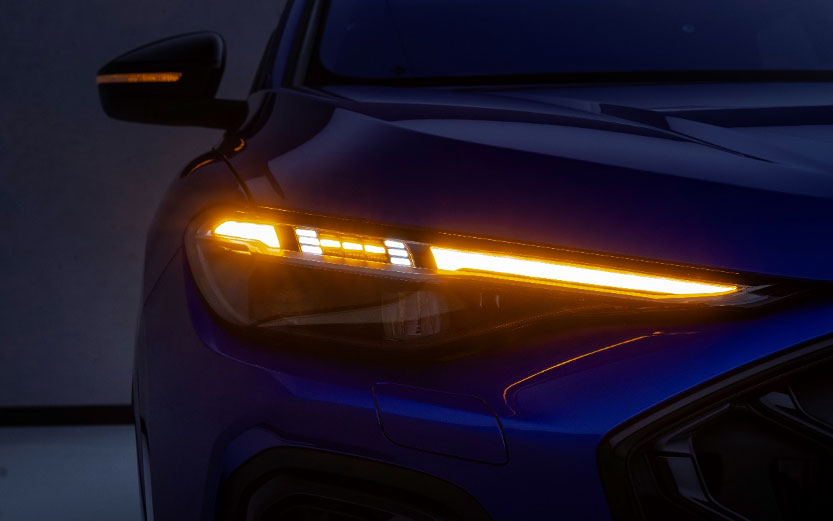
Not counting US (with side marker light + reflector and, at a guess, red turn signal) versus rest-of-world (no side markers, yellow turn signal) differences, there are three different rear lamp setups. The base lamp has LEDs, but without any sequential activation. The first-upgrade version includes sequential activation. And the top version has Audi’s famous Digital OLED 2.0 with 266 segments on this car (compare: 450 segments on the A6).
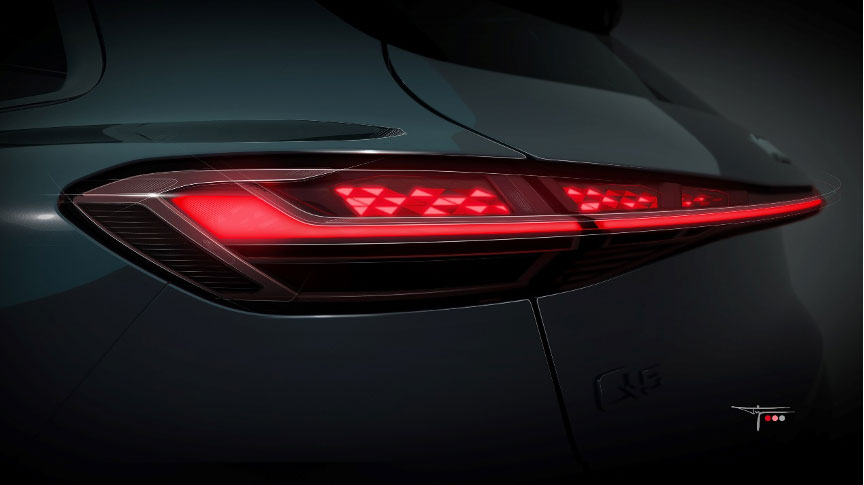
All versions have the same rear design with 7 different lamps. Audi have changed their previous Q5 design generation—which had a unique tailgate lamp without any body lamp, plus auxiliary lights down in the bumper for when the hatch was open, so the main lights were out of position—to a new design similar to that on the Q6, A6, and A5.
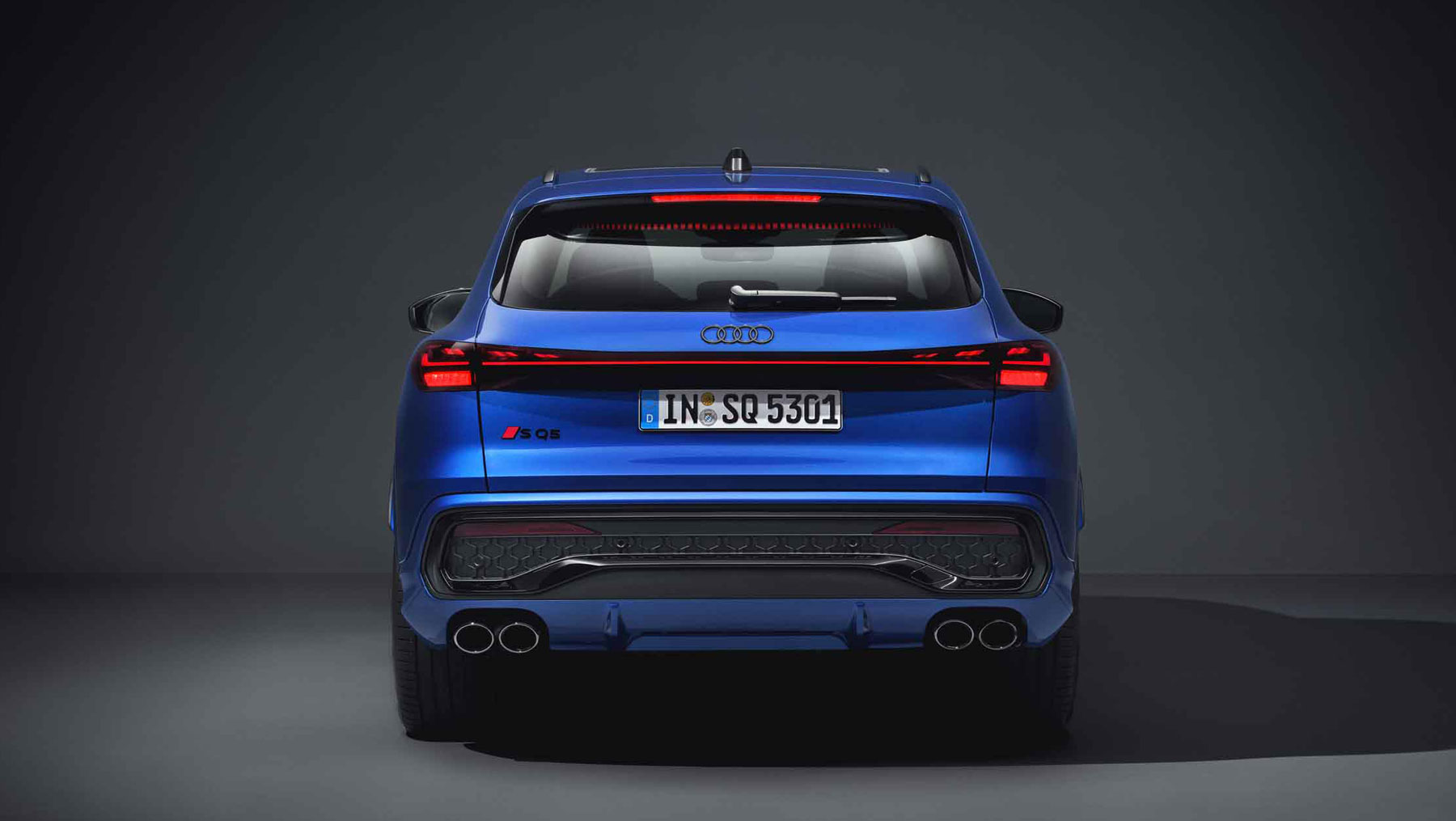
The licence plate lamp is now incorporated in the trunk lamp, while the rear fog lamps are moved to the bumper.
The CHMSL is intentionally designed to provide a reflection on the rear window to provide a nice effect. In Europe it is a plain projection, but in the US- and China-spec models you can see a projected Audi logo and callout.

As to the interior illumination: there’s Audi’s ‘dynamic interaction light’ which spans the entire width of the interior as an LED strip and supports the occupants’ interaction with the vehicle. The IAL serves to showcase the interior and offers, for example, a welcome function or indicates when the vehicle is locked and unlocked. It also provides safety support; for example, the dynamic indicator light is visualized. This enhances the display in the virtual cockpit. The IAL always remains an additional display and does not replace the turn signals in the virtual cockpit. This dynamic interaction light is part of the optional Ambient Lighting Plus package.
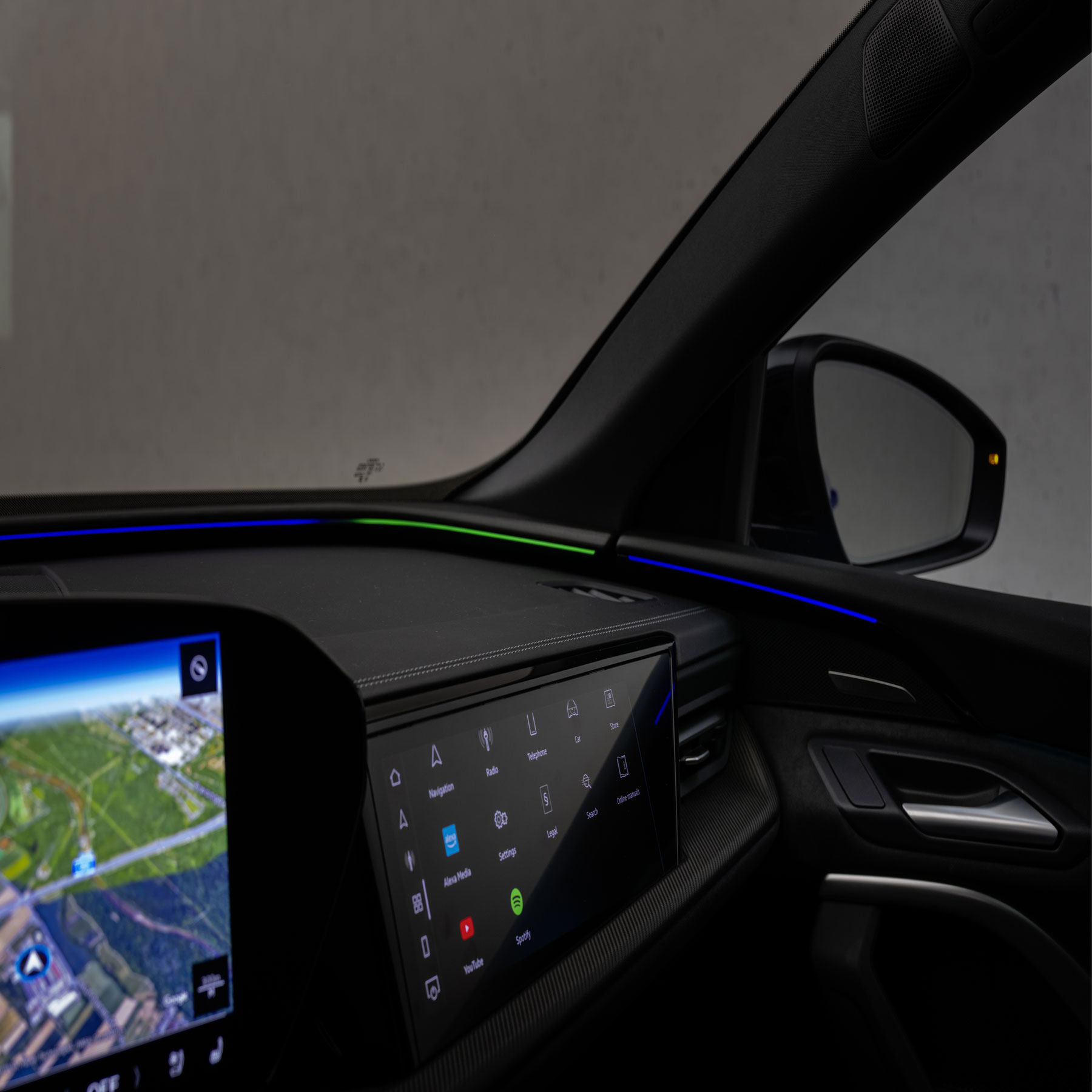
Audi lighting design boss Caesar Muntada says, « We design not only the shape of the light in a series-production vehicle, but its entire movement. Thanks to the perfect symbiosis between our lighting design and the new technology, the light of the Q5 appears livelier and more intelligent than ever before. We have given the light signature its own personality and the digital world its own aesthetics at the same time. With the active digital light signature, the new Q5 continues an era of unique design and aesthetics that can only be found at Audi ».






